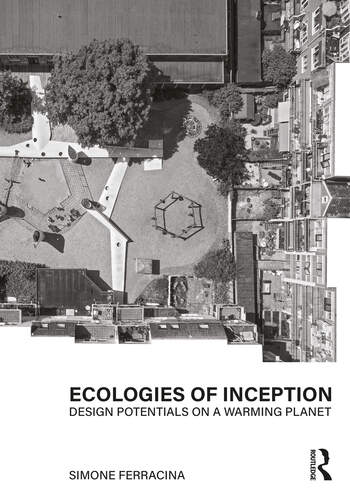Simone Ferracina, founding director of Exaptive Design Office (EDO) and Lecturer in Architectural Design/Detail at University of Edinburgh (UK), discussed his book Ecologies of Inception: Design Potentials on a Warming Planet (Routledge, 2022) in the Greenhouse environmental humanities book talk series on Monday, 20 February 2023, 16:00 in Norway (Central European time) / 15:00 in UK.
Responding to increasing levels of planetary pollution, waste generation, carbon dioxide emission and environmental collapse, Ecologies of Inception re-thinks potentiality—an object’s ability to change—in architecture and design. The book problematizes the still-prevailing modern paradigm of design practice: the technical tabula rasa, a tendency to begin from scratch and use raw, amorphous, and obedient materials that can be easily and effectively manipulated, facilitating a seamless and faithful embodiment of intentions. Instead, the philosophy of design developed in the text prompts—through a variety of case studies, thinkers, and disciplines—a collective reconsideration of value, dissociating it from the projects and signatures of any one author or generation. Whereas the merits of up-cycling and circular design are canonically defined vis-à-vis status-quo economic and socio-cultural orthodoxies, this project unpacks the theoretical assumptions that underpin these practices, showing that they perpetuate the same biases and exclusions that generate waste in the first place.
As an alternative, the book introduces a nodal and exaptive paradigm for design: a conceptual and methodological toolset for engaging the durational and anthropocenic materiality of the third millennium, and for radically prioritizing practices of maintenance, reuse, care, and co-option. This approach, which is inspired by (and builds upon) evolutionary biology, technological disobedience, queer use, adaptive reuse, experimental preservation, and improvisational practices such as collage, adhocism, bricolage, and kit-bashing, refuses to reduce pre-existing material substrates to abstract lists of properties or featureless lumps, encountering them on their own terms—as situated individuals and co-authors.
